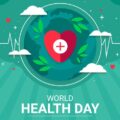A new report by the US Health America of Trump Administration highlights increasing concerns over chronic diseases in children, unhealthy diets, environmental toxins, overwhelming and vaccine are blamed for over -use. Health and Human Services Secretary Robert F. Under the chairmanship of Kennedy Junior, the Commission urged the federal agencies to investigate these root causes and promise a detailed action plan within 100 days with expected conclusions in six months.
Estimates suggest that 10% to 50% of American children suffer from chronic diseases based on source. The report states, “To better protect our children, the U.S. must act decisively,” to deal with symptoms, not only to deal with symptoms.
1. Poor Diets and Ultra-Processed Foods
The report strongly criticized the heavy consumption of ultra-transformed foods-sodas, sugars snacks, and artificially aromatic products-motions, diabetes, heart disease, mental health issues and cutting their links for early mortality. It asks for a change towards full foods such as leafy greens, beans, nuts, meat, and full -fat dairy.
Marion Nestle, PhD, praised the report for his direct approach, although he warned that real changes could face pushbacks from the powerful food industry. Registered dietist Kony Dikeman also mentioned that education and strength are important- “tell people that they are not enough to cut the ultra-sensitive food if healthy food is inaccessible or ineffective.”
2. Pesticides and Environmental Chemicals
The great report also flagged environmental toxins – especially pesticides – as a major concern for children’s health. Children are more vulnerable than adults to pollutants in food, air, and consumer products. However, Dr. of Stony Brook University. Experts like Jamie Membler, say that how chemical mixtures affect health, there is still a lack of strong research.
Despite the concerns, the report refrains from announcing that the widely used pesticides such as glyphosates and Atzin’s are unsafe, allegedly due to industry and political pressure. The American Farm Bureau Federation replied that the report misrepresented agriculture, arguing that farmers are equally committed to improving public health.
3. Overmedication of Children
The commission argues that medicines are being prescribed to children – including stimulants, antidepressant, antibiotics, asthma drugs and obesity treatments – at dangerous rates, often unnecessarily. One of the five American children allegedly took at least one prescription medicine in the last month.
However, some experts disagree. A pediatric neurologist Dr. Max Wiznitzer says that there is better awareness – not overdiagnosis – behind the rising prescription rates. Dr. Regi Gingis says that many psychiatric drugs are both safe and effective. The real problem, they argue, is lack of access to therapy and prolonged waiting time, not overlapping.
4. Questioning Vaccine Safety
The report raises doubts about the increasing number of recommended childhood vaccines, given that American children now receive up to 29 doses at an age in 1986 than just three. While it reflects Kennedy’s famous skepticism, scientific consent is firm: the vaccine is safe, effective and essential for public health.
Experts such as Dr. Stephen Morse have warned that challenging vaccine safety may hesitate to hesitate, causing more outbreaks of diseases such as measles and cough. While severe side effects are rare, the risk of not remotely vaccinated.
5. Sedentary Lifestyle and Screen Time
Children spend more time on the screen today and less time. The report describes it as an important factor of decline in fitness, obesity and poor mental health. More than 70% of children and 85% teenagers fail to meet the CDC’s recommendation of at least one hour of medium activity.
American Academy of Pediatrics. Dr. Jenny Radesky admitted that when the report at the time of the screen lacks scientific depth, it resonates with the concerns of the parents. Experts advocate a balanced routine with technical regions, daily exercise and adequate sleep.
Columbia University Dr. James Gangwisch said that the increase in screen time reduces the opportunities for direct physical activity, which is important for both mental and physical health.







